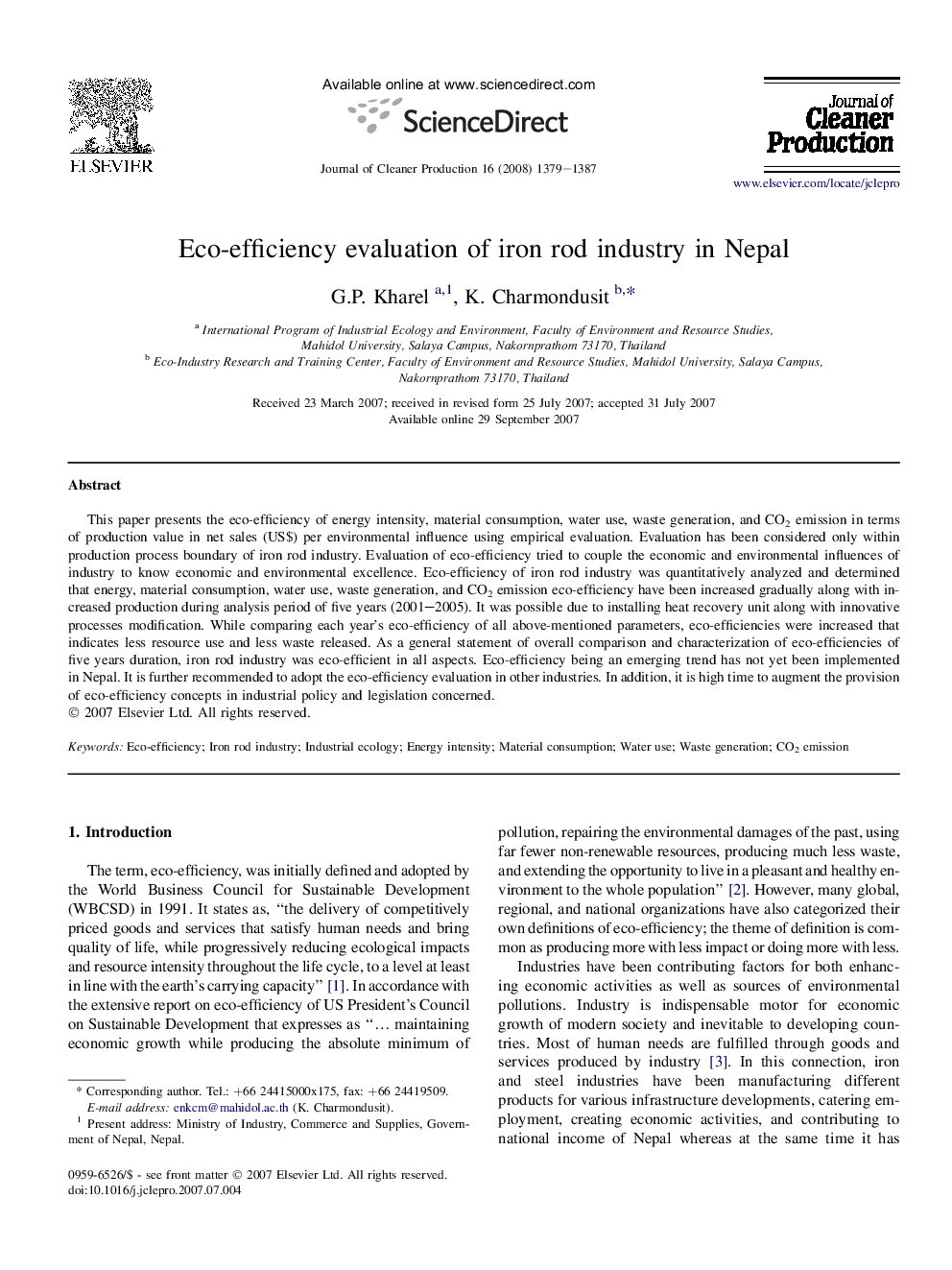| Article ID | Journal | Published Year | Pages | File Type |
|---|---|---|---|---|
| 1746453 | Journal of Cleaner Production | 2008 | 9 Pages |
This paper presents the eco-efficiency of energy intensity, material consumption, water use, waste generation, and CO2 emission in terms of production value in net sales (US$) per environmental influence using empirical evaluation. Evaluation has been considered only within production process boundary of iron rod industry. Evaluation of eco-efficiency tried to couple the economic and environmental influences of industry to know economic and environmental excellence. Eco-efficiency of iron rod industry was quantitatively analyzed and determined that energy, material consumption, water use, waste generation, and CO2 emission eco-efficiency have been increased gradually along with increased production during analysis period of five years (2001–2005). It was possible due to installing heat recovery unit along with innovative processes modification. While comparing each year's eco-efficiency of all above-mentioned parameters, eco-efficiencies were increased that indicates less resource use and less waste released. As a general statement of overall comparison and characterization of eco-efficiencies of five years duration, iron rod industry was eco-efficient in all aspects. Eco-efficiency being an emerging trend has not yet been implemented in Nepal. It is further recommended to adopt the eco-efficiency evaluation in other industries. In addition, it is high time to augment the provision of eco-efficiency concepts in industrial policy and legislation concerned.
